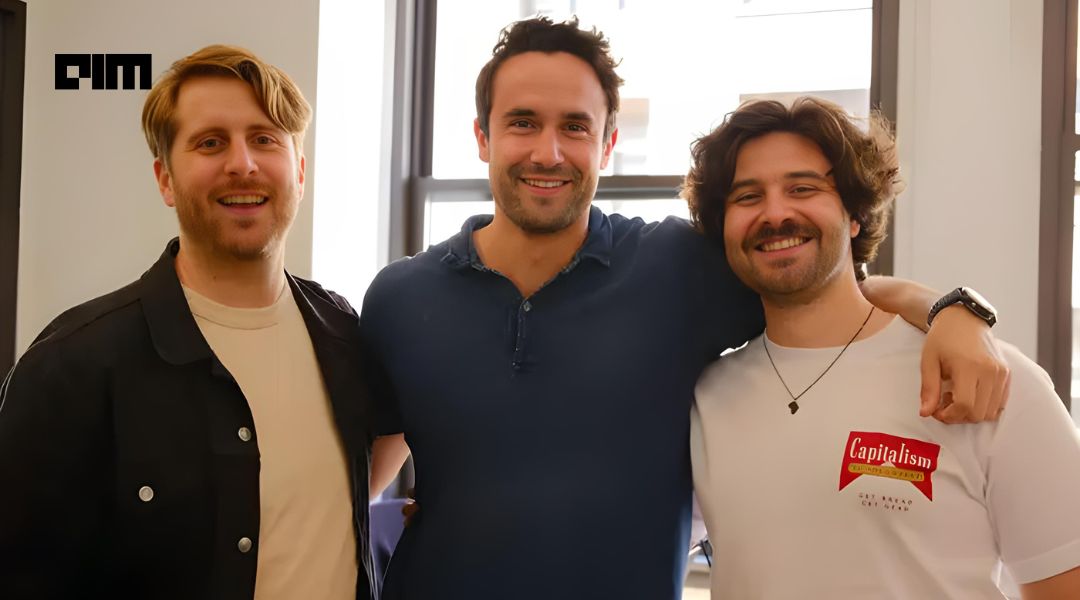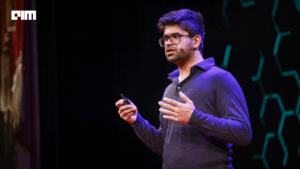When Michael Louis and Jonathan Irwin were building AI capabilities at their last startup, OneCart, they faced a familiar challenge: provisioning GPU resources, managing inference workloads, and scaling models reliably across environments took more time and capital than expected. The duo, who served as CTO and lead engineer at the South African e-commerce company, saw an opportunity to abstract away these infrastructure burdens for other engineering teams.
That idea became Cerebrium, a serverless AI infrastructure platform that has quickly found traction among developers building real-time, multimodal applications. On Tuesday, the company announced it raised $8.5 million in seed funding, led by Gradient Ventures, with participation from Y Combinator, Authentic Ventures, and several strategic angel investors. The round marks a milestone not only for Cerebrium but for African-founded startups aiming to scale globally from day one.
“Tooling was fragmented, there was an education gap between theory and production, the unit economics didn’t make sense, and development cycles took months,” said Louis. “We built Cerebrium so engineers can focus on building AI products that users love with real business impact, instead of hiring an infrastructure team, racking up six-figure cloud bills or worrying about security and compliance.”
Cerebrium’s platform provides serverless CPU and GPU infrastructure that can be spun up or down instantly. Users pay only for active compute time, making the platform ideal for volatile AI workloads such as real-time voice agents, video generation, or fine-tuning large language models where traditional infrastructure can result in high idle costs.
“What that means is you only get charged for that exact time that it was basically running for,” Louis told Business Insider.
The product abstracts away core infrastructure operations including model inference, training, and data processing so developers can focus on the end-user experience. It supports containerized deployment and regional scaling, giving teams greater control over model execution environments without needing to build in-house infrastructure capabilities.
Cerebrium is currently used across three major categories: Voice AI, real-time digital avatars, and healthcare applications. Its customers include companies such as Tavus, which generates AI-powered personalized video, as well as voice technology firms Deepgram and Vapi.
According to the company, Cerebrium’s infrastructure is built specifically for high-performance, multimodal use cases that demand low-latency, distributed deployment. That includes everything from LLM inference to document processing and large-scale analytics workloads that benefit from elastic, on-demand compute resources.
Strong Early Traction
Despite having only four engineers on its team, Cerebrium is already generating millions in annual recurring revenue (ARR). The company joined Y Combinator in early 2023 and has since relocated to the U.S. to be closer to its customer base and investors.
The new capital will be used to grow the engineering team, introduce new platform features, and expand enterprise integrations. Cerebrium is also exploring geographic expansion to support customers across regions with data residency and latency requirements.
Gradient Ventures, which led the round, sees Cerebrium as a foundational player in the AI infrastructure space. “We believe specialized infrastructure, which scales elastically, will be essential as real-time AI becomes core to customer experiences,” said Eylul Kayin, Partner at Gradient Ventures.
That thesis aligns with broader investment trends. According to PitchBook, global investment in AI startups exceeded $84 billion in 2024, with a growing share going to companies that provide foundational tools rather than end-user applications.
While companies like Stack AI and Artisan focus on agent-based AI experiences, Cerebrium is positioning itself as the infrastructure layer powering those products. The goal is to become the default platform for developers building production-grade AI handling compute, scalability, and deployment while customers focus on innovation.
Global Vision from Day One
Cerebrium is part of a new generation of Africa-founded startups that are building for global markets early, bypassing the traditional path of local scaling. While its origins are in Cape Town, the company’s move to New York reflects a deliberate strategy to serve enterprise customers in North America while retaining its engineering roots.
“We know that AI is changing the world, and we want Cerebrium, a South African founded company, to be the platform powering it,” said Louis.
The company’s trajectory reflects a broader shift in how AI-native infrastructure is being developed and adopted. Rather than retrofitting existing cloud platforms for AI use cases, Cerebrium was built from the start to address the needs of modern ML teams with cost efficiency, global scalability, and deployment speed as core pillars.
“What started as a small team of engineers from South Africa is now powering some of the most exciting AI companies in the world,” Louis said. “We’re supporting companies building digital avatars, voice agents, LLMs and document processing solutions across healthcare, finance, and beyond all over the globe.”










